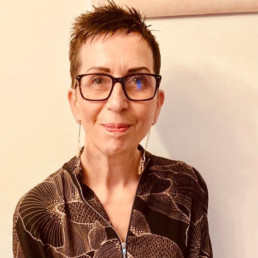
Written by Jayne Carter
Jayne is the Director of Ignite Education Ltd, providing consultancy for practitioners within the Early Years & Primary sector. She uses coaching a a model for change, facilitating professional conversations which are focused on empowering others & generating growth in knowledge & skills.
As part of the L.E.A.D Teaching School Hub’s extensive offer for EDI, I was invited to lead a diversity research group based on Bennie Kara’s fantastic book: Diversity in Schools. This blog is intended to support others who may wish to run similar groups for teachers and school leaders.
The research group was structured around one session per month for each book chapter. It worked well for each participant to read the focus chapter in preparation for the meeting, to be ready to discuss their reflections and implications for their own practice.
Discussions were facilitated around the key messages included in each chapter with the addition of extra resources focused on the needs of the group.
The aims of the research group included:
- To use research & literature as a tool for school improvement
- To develop a culture of peer-to-peer support & critical analysis
- To implement key strategies & approaches at a whole school level
Some of the attendees wanted to focus on whole school implementation, whereas others wanted to improve their own subject knowledge in preparation to share at school.
Each session included a planned gap task based on the focus of the chapter as well as an individual gap task which was identified by each attendee in order to meet the needs of their school.
For example, the third session focused on the chapter ‘How can we create a diverse classroom?’ Everyone carried out the audit included in the book. Individual gap tasks that were chosen included;
- sharing UNESCO inclusion research with members of their SLT
- exploring the free trial of Lyfta as a whole-school EDI resource
- considering how to organise their seating plan to ensure inclusivity
- evaluating the use of cold calling/trio conversations in their classrooms.
Time was planned into the following sessions to discuss reflections from the individual gap tasks and all resources were included in a workgroup padlet. The padlet worked well to ensure that everyone had constant access to key resources/research. It also provided an effective means of communication between meetings.
Being able to meet frequently with attendees helped me as a workgroup lead to understand the priorities for each school and what was important to them. As the meetings progressed, I was able to structure the sessions to become even more personalised to the group’s needs, with additional research and tools being shared and added to the padlet.
Over the seven sessions, attendees enhanced their EDI improvement plan or developed their own EDI plan. The next steps identified after each chapter supported these improvement plans by providing structure and focus.
During the final session the overall impact of and reflections about the workgroup were collected:
- All attendees found the structure of the workgroup useful as it moved from a training session to meetings which were collaborative and supportive of an action research improvement model.
- Attendees liked the planned gap tasks; especially the opportunity to carry out a shared task, which helped shared discussions but also a gap task which was personalised and prompted change at a school level.
- All attendees noted that the additional resources sourced and added to the padlet were valuable with everyone committing to using the padlet next academic year.
As the workgroup lead, the opportunity to guide attendees into analysing research was valuable as it gave me a useful reminder of day-to-day school priorities. One of my own personal outstanding reflections was the knowledge that the plans developed would be sustained as they had been developed carefully and with the vision of not only what needed to be in place but why.
My thanks to Bennie Kara for creating such an accessible and informative book. I hope that this blog encourages others to lead more reading groups or research groups on diversity in schools across the sector.

